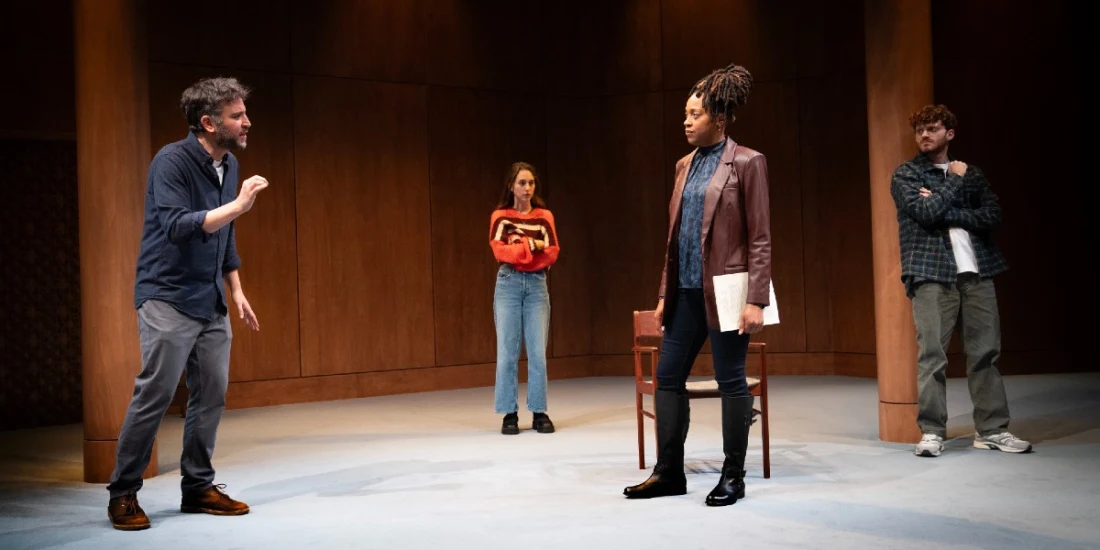'The Ally' review — new play, starring Josh Radnor, mines political controversy
Read our review of The Ally off Broadway, a new play at The Public Theater starring Josh Radnor, written by Itamar Moses, and directed by Lila Neugebauer.
The Israeli-Palestinian conflict has long been a topic of dramatic weight, but as war has raged these last few months, it effects on American college campuses has become a media obsession. This is the setting for Itamar Moses’s The Ally at The Public Theater, where playwriting professor Asaf (How I Met Your Mother's Josh Radnor) finds his secular Israeli American identity butting up against students further on both sides of the political aisle. After the police murder a Black man — the cousin of his star student, Baron (Elijah Jones) — in his town, Asaf finds himself swept up in a snowball of anti-Zionist activism, gentrification, Zionist backlash, and marital trouble.
The characters ponder the political interconnectedness of these heavy topics – police brutality, Israel and Palestine, gentrification in college towns, Jewish identity – but never does Moses take a step back to consider the dramatic interconnectedness or lack of it. These concepts are connected, as Baron learns over the course of one scene, but they are packed into the script with no breathing room, preventing the characters from authentic self-reflection (and the actors from a moment’s rest). Everyone is passionate, but no one is sincere.
Characters spout archetypal arguments for or against Zionism: Reuven (Ben Rosenfield), an Orthodox PhD student, asks “Do you know what ‘Never Again’ means to a Jew?” when he doesn’t get his way. Farid, a Palestinian student who partners with a Jewish student group to bring a controversial historian to campus, lists off facts. No one’s right or wrong or good or bad, at least not for very long. The space between concrete answers can breed dramatic tension, but The Ally feels more like a series of lectures than a play.
All the characters but Asaf, thus, become amalgamations of talking points from history and the news, not people. They have monologues about their insecurities and fears, but all are filtered through Asaf's experience of them.
It’s too convenient that Asaf happened to date Nakia, a Black woman (Cherise Boothe) who now works in the community his wife Gwen (Joy Osmanski) is trying to displace for university housing. Of course a tragedy in his student’s life becomes a point of narrative contention for Asaf. Boothe returns later as a rabbi meant to listen to Asaf’s confessions of doubt.
As much as Asaf insists he’s acting in others' best interests, The Ally is only about him. Perhaps this is an unfair critique of a self-insert character. Moses, like his protagonist, is a playwright whose Israeli parents raised him in the Bay Area to be a good soldier in the war against political complacency.
On the topic of wars, one is missing from the story: The program notes that the play is set in "September and early October of 2023," though no direct mention is made of the current conflict. This is perhaps for the better, but the oversight rings strange. At intermission, I read an emailed report about disease spreading amid the sanitation crisis in Gaza. There’s no sense of dramatic urgency in The Ally – that lives off stage.
The Ally is at The Public Theater through March 17. Get The Ally tickets on New York Theatre Guide.
Photo credit: Josh Radnor, Madeline Weinstein, Cherise Boothe, and Michael Khalid Karadsheh in The Ally. (Photo by Joan Marcus)
Originally published on
